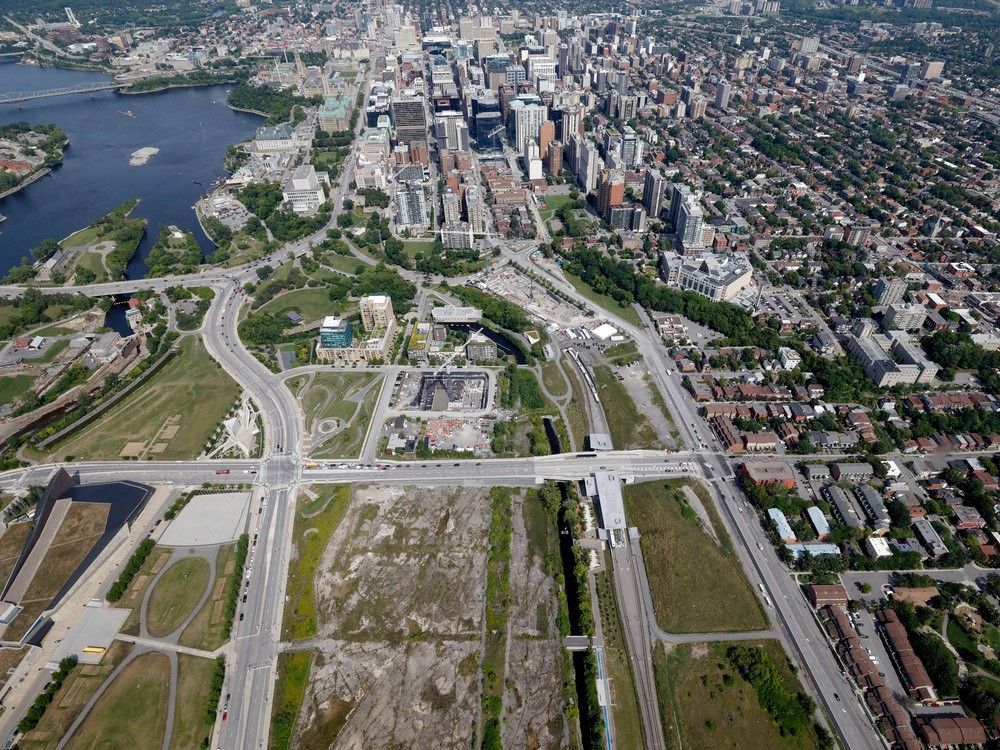The B.C. Agriculture Council is calling for the creation of agricultural water reserves, giving farms priority access over other industries
Published Sep 20, 2024 • Last updated 0 minutes ago • 4 minute read

Water wars sound like they’re straight from a dystopian novel, but some B.C. farmers say they’re fighting to grow food without reliable access to water.
Still reeling from 2023, when many ranchers were ordered to turn off their irrigation and watch hay crops shrivel — an act that contributed to a 25 to 30 per cent reduction in the size of beef herds — the B.C. Agriculture Council and two large industry groups, B.C. Dairy and the B.C. Cattlemen’s Association, are asking the province to create dedicated agricultural water reserves, similar to the agricultural land reserve.
Advertisement 2
THIS CONTENT IS RESERVED FOR SUBSCRIBERS ONLY
Subscribe now to read the latest news in your city and across Canada.
- Unlimited online access to articles from across Canada with one account.
- Get exclusive access to the Vancouver Sun ePaper, an electronic replica of the print edition that you can share, download and comment on.
- Enjoy insights and behind-the-scenes analysis from our award-winning journalists.
- Support local journalists and the next generation of journalists.
- Daily puzzles including the New York Times Crossword.
SUBSCRIBE TO UNLOCK MORE ARTICLES
Subscribe now to read the latest news in your city and across Canada.
- Unlimited online access to articles from across Canada with one account.
- Get exclusive access to the Vancouver Sun ePaper, an electronic replica of the print edition that you can share, download and comment on.
- Enjoy insights and behind-the-scenes analysis from our award-winning journalists.
- Support local journalists and the next generation of journalists.
- Daily puzzles including the New York Times Crossword.
REGISTER / SIGN IN TO UNLOCK MORE ARTICLES
Create an account or sign in to continue with your reading experience.
- Access articles from across Canada with one account.
- Share your thoughts and join the conversation in the comments.
- Enjoy additional articles per month.
- Get email updates from your favourite authors.
Sign In or Create an Account
or
Article content
“We’ve protected the land base, but we haven’t protected the water to go with it,” said Kevin Boon, general manager of the B.C. Cattlemen’s Association. “The land loses its value if we can’t put water on it.”
The B.C. Agriculture Council has been calling on B.C. to follow the lead of other jurisdictions to ensure reliable access to water for agriculture since at least 2012, when the province was seeking submissions on a new water sustainability act. The council’s pitch said agricultural water reserves would be “forward-looking.”
But after several seasons of drought, which has eased in the southern part of the province but continues elsewhere, water shortages are “not a hypothetical anymore,” said Chris Bodnar, agriculture professor at the University of the Fraser Valley.
Climate change has increased the likelihood and intensity of drought cycles, while the water sustainability act, which was eventually introduced in 2016, is largely “dysfunctional,” he said.

Eight years after it came into effect, fewer than half of B.C.’s 20,000 non-domestic groundwater users have applied for a water licence, with the rest presumably using water without it, according to previous news stories. The Ministry of Land, Water and Resources Stewardship was unable to provide current numbers before deadline.
By signing up you consent to receive the above newsletter from Postmedia Network Inc.
Article content
Advertisement 3
Article content
In the Comox Valley on Vancouver Island where there are water shortages in summer, farmers have been building dugouts to collect rainwater, only to be hit with $10,000 fines when they try to draw from them, said Trevor Stevenson, vice-president of the Comox Valley Farmers Institute.
“We don’t see what we’re doing wrong,” he said. “But we’ve been vilified.”
Regulations stipulate that dugouts must be constructed with a rubber liner to prevent groundwater from entering, driving up the cost from $50,000 for a simple pond to $300,000 with a liner.
Stevenson said he attended a workshop hosted by the Ministry of Agriculture to help farmers deal with water shortages where he received a brochure advising him to build a dugout to store water, “no licence needed.”
“It’s mixed messages,” he said. “If we can’t draw groundwater, give us an alternative. But you can’t just tell us that we can’t use water.”
The institute has started encouraging farmers to report visits from the so-called “water police” so other farmers can attend and videotape the meetings to ensure everyone is getting the same information.
Advertisement 4
Article content
Bodnar said the current system risks pitting farmers against each other and other water users, including Indigenous groups and environmentalists when the water is turned off to protect salmon runs.
“If we don’t do this right, it puts people in opposition to each other. They’re asking why do my cows matter less than the salmon?” he said.
Bodnar said he’s not certain agricultural water reserves are the solution, but he was pleased to see the B.C. Agriculture Council and industry groups bring the idea forward to show their willingness to engage on the issue.
“I think the actual solution will be more complex,” he said.
The federal and provincial governments have funded several projects related to preparing B.C. farms for drought, including an irrigation-scheduling project on Vancouver Island and water-management workshops.
B.C. Agriculture Council executive director Danielle Synotte said the water reserves should be implemented on a watershed level that takes into account the specific water needs of an area. Agriculture water should be a distinct category of water use, with measures taken to upgrade and add infrastructure, including storage reservoirs, to ensure a continuing supply of water for food production.
Advertisement 5
Article content

B.C. Dairy general manager Jeremy Dunn said farmers cannot afford to purchase efficient irrigation systems that can cost hundreds of thousands of dollars without a guarantee that there will be water.
“We need a policy to protect access to water for agriculture,” he said, pointing to Vancouver Island where farmers who have grown food for decades have had their water turned off, while thousands of new residents, businesses and industries in the region lead to increased demand.
“We’re prioritizing fish over other food products. We have the ability to have water for both, but we have to put the money in,” said Boon, with the B.C. Cattlemen’s Association.
“The demand for water will only grow,” he predicted. “Blue gold is what it is.”
Recommended from Editorial
-

'The people who grow our food are just stressed out': Debt, disasters raise pressure on B.C. farmers
-

Regenerative agriculture is more than a buzzword for these B.C. farmers
-

'Years of struggle': How B.C.'s climate change is affecting the way we grow our food
-

Opinion: Why B.C. must act now on Agricultural Water Reserves
Bookmark our website and support our journalism: Don’t miss the news you need to know — add VancouverSun.com and TheProvince.com to your bookmarks and sign up for our newsletters here.
You can also support our journalism by becoming a digital subscriber: For just $14 a month, you can get unlimited access to The Vancouver Sun, The Province, National Post and 13 other Canadian news sites. Support us by subscribing today: The Vancouver Sun | The Province.
Article content
.png)
 2 hours ago
5
2 hours ago
5




































 Bengali (BD) ·
Bengali (BD) ·  English (US) ·
English (US) ·